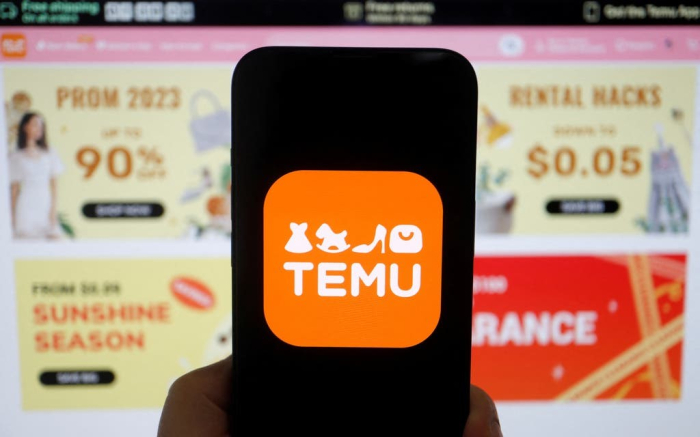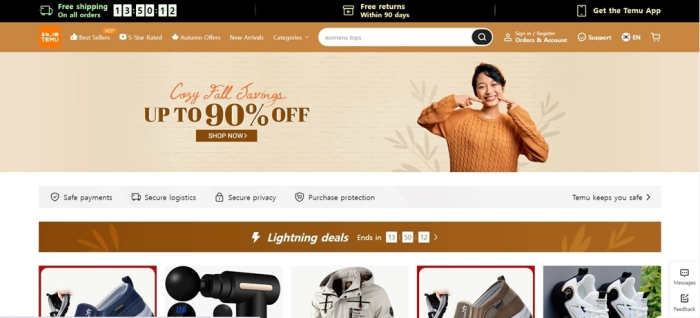Regulations
South Korea gets tough with Chinese platforms AliExpress, Temu, Shein
Foreign platform operators will be required to set up local offices in Korea to properly handle customer issues
By Mar 13, 2024 (Gmt+09:00)
3
Min read
Most Read
LG Chem to sell water filter business to Glenwood PE for $692 million


KT&G eyes overseas M&A after rejecting activist fund's offer


Kyobo Life poised to buy Japan’s SBI Group-owned savings bank


StockX in merger talks with Naver’s online reseller Kream


Meritz backs half of ex-manager’s $210 mn hedge fund



South Korea plans to introduce a get-tough e-commerce policy on Chinese platforms such as AliExpress, Temu and Shein amid increasing complaints about fake products and a lack of dispute settlements by online shopping mall operators.
Following a ministers’ meeting earlier on Wednesday, Deputy Prime Minister and Finance Minister Choi Sang-mok announced a set of consumer protection measures targeting overseas online platform operators.
Ministers of related government agencies, including the Fair Trade Commission (FTC), the Ministry of Food and Drug Safety, the Korea Customs Service, the Trade Ministry and the Korean Intellectual Property Office, attended the emergency government meeting.
The government said it will revise the Electronic Commerce Act to make it mandatory for large foreign online platform operators to set up local corporations or local offices in Korea.
Regulators will strengthen the monitoring of unfair business practices by foreign online retailers. If and when they are found to be involved in illegal activities or to have neglected their duty to protect consumers, they will face stern punishment, ministers said.

Seoul will start working on related law revisions this month.
Industry officials said the government’s move to strengthen regulations is largely aimed at Chinese e-commerce players, which are rapidly gaining ground in Korea.
Despite their growing influence over Korean consumers, some big Chinese names such as Temu and Shein don’t have any local operations in Korea to properly and swiftly handle consumer complaints about their purchases, ministers said.
CHINESE FIRMS REIGN SUPREME OVER KOREAN OPERATORS
In recent years, Chinese e-commerce giants have increasingly attracted Korean consumers to their online platforms with cheaper products and sometimes faster deliveries than Korean rivals such as Coupang, Naver Corp., 11Street, SSG.COM and Gmarket.
Industry watchers have noted the speed with which Chinese e-commerce apps are growing in Korea’s online shopping market.

Temu, a popular Chinese discount e-commerce platform that landed in Korea last year, has cracked homegrown players’ dominance in the online retail space.
Offering sharply discounted goods and free returns, it has instantly become one of the most frequently downloaded apps among Korean youth.
Operated by Chinese e-commerce giant PDD Holdings Inc., formerly Pinduoduo, Temu allows China-based vendors to sell and ship directly to customers without relying on intermediate distributors in the destination country, and thus able to lower prices.
Chinese tech giant Alibaba’s online shopping app AliExpress and fashion e-retailer Shein are also luring Korean consumers with ultra-low prices.
AliExpress even offered Korean companies zero commissions to encourage them to sell products on its platform.
Last week, Korea’s top food maker CJ CheilJedang Corp. said it will sell its products on AliExpress after severing ties with Coupang, Korea’s No. 1 e-commerce platform.
In 2022, China outpaced the US as the largest foreign online market for Koreans in terms of value. Koreans spent $1.7 billion buying goods online from China, up 32% on-year. That compared with a 15% decline to $1.6 billion in their spending on US e-commerce platforms, according to the Korea Customs Service.

In 2023, Chinese platforms accounted for 48.7% of Koreans’ online shopping while US online shopping malls took 27.5%, data showed.
TO CRACK DOWN ON COUNTERFEITS
Chinese online shopping apps’ strategy of ultra-low prices often sparks controversy over counterfeit products in Korea.
The FTC has been investigating AliExpress’s Korean office since last month to check the appropriateness of their personal information processing policies amid growing Korean consumers’ complaints about fake goods sold on their platforms.
The government said on Wednesday officials are in talks with AliExpress and Temu about the need for the platform operators to ban retailers from selling counterfeits on their sites.
Authorities are also considering setting up a hotline with foreign platform operators to address consumer complaints.
Critics, however, say that it may be hard for Korean authorities to regulate Chinese companies as they are not importers but cross-border platform operators.
Write to Han-Shin Park, Jae-Kwang Ahn and Sul-Gi Lee at phs@hankyung.com
In-Soo Nam edited this article.
More to Read
-
 E-commerceAliExpress sells top K-food maker’s products in S.Korea
E-commerceAliExpress sells top K-food maker’s products in S.KoreaMar 08, 2024 (Gmt+09:00)
3 Min read -
 E-commerceKorea probes AliExpress as Chinese e-commerce threat grows
E-commerceKorea probes AliExpress as Chinese e-commerce threat growsMar 07, 2024 (Gmt+09:00)
4 Min read -
 E-commerceAliExpress’ zero-commission offer jolts Coupang, Naver
E-commerceAliExpress’ zero-commission offer jolts Coupang, NaverJan 31, 2024 (Gmt+09:00)
2 Min read -
 E-commerceChina’s Temu challenges homegrown e-commerce platforms in Korea
E-commerceChina’s Temu challenges homegrown e-commerce platforms in KoreaOct 19, 2023 (Gmt+09:00)
3 Min read
Comment 0
LOG IN


